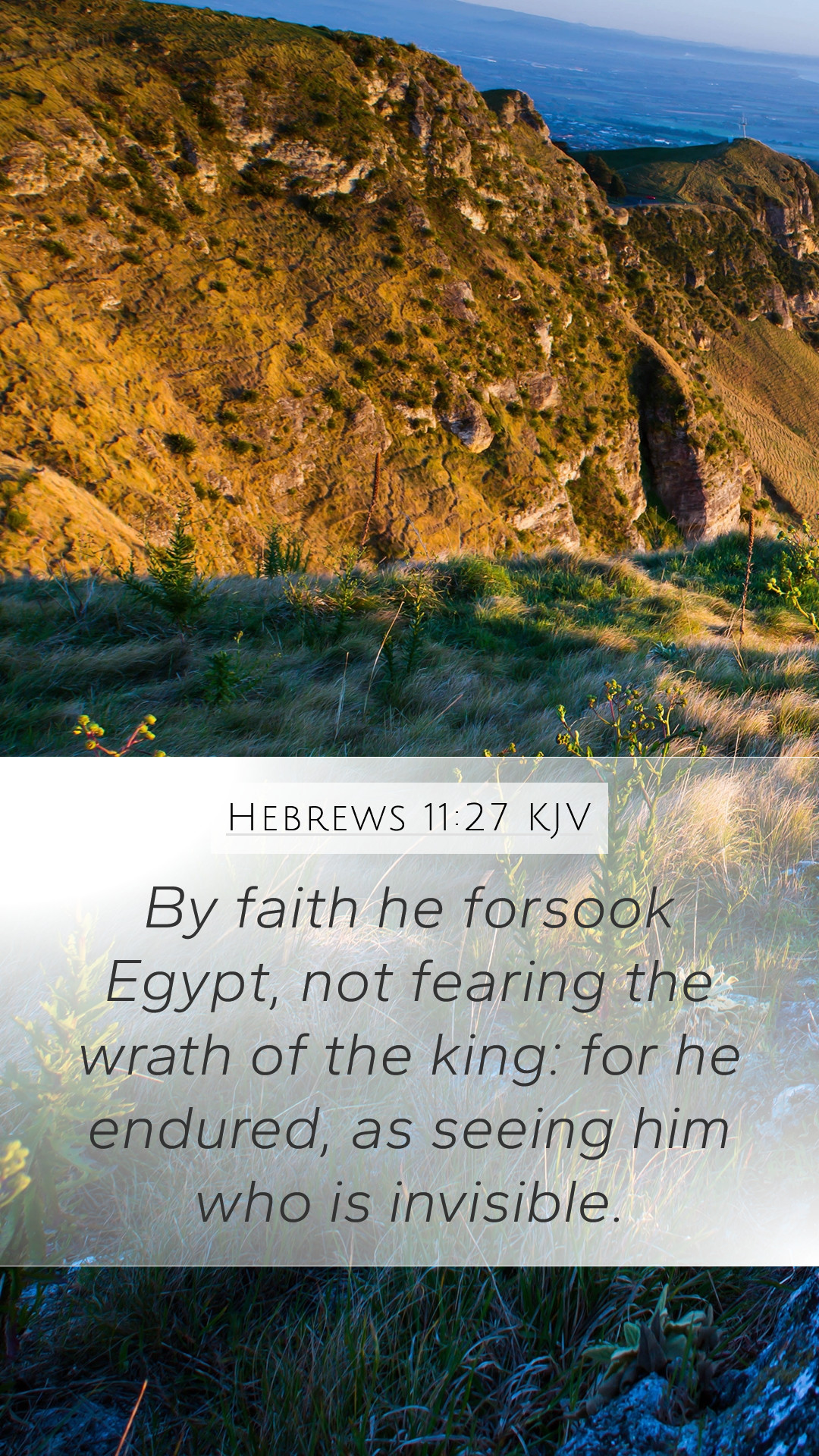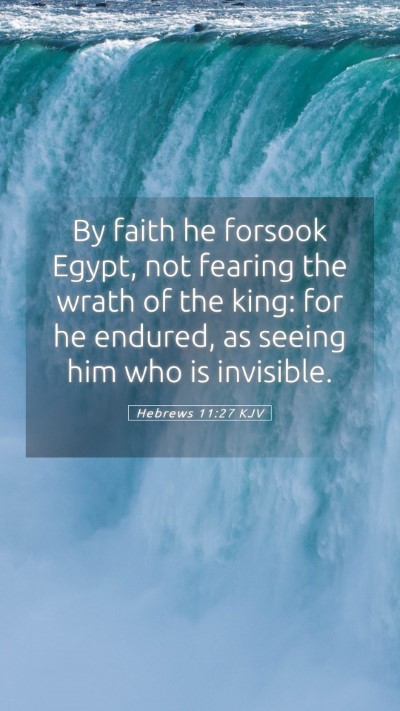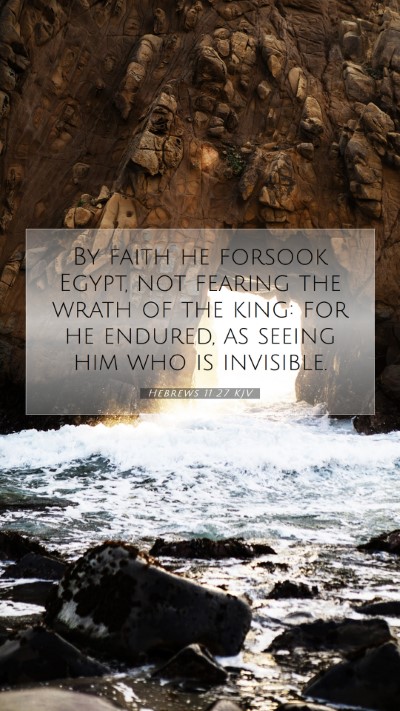Bible Verse Meaning and Understanding of Hebrews 11:27
The verse Hebrews 11:27 states, "By faith he forsook Egypt, not fearing the wrath of the king: for he endured, as seeing him who is invisible." This remarkable statement of faith reflects the life of Moses and encapsulates profound principles about faith, courage, and the unseen realities of God's promises.
Overall Significance
This verse is pivotal in demonstrating Moses' profound faith. Moses' decision to leave Egypt illustrates how he prioritized obedience to God over earthly safety and status. He willingly chose to confront danger, a trait deeply explored in various biblical commentaries.
Commentary Analysis
-
Matthew Henry's Commentary:
Henry emphasizes that Moses' faith was noteworthy because it compelled him to forsake the comforts and security of Egypt. He notes that Moses saw the invisible God, which fueled his strength and resolve. This perception of God offered him a clearer vision of his divine mission despite earthly opposition.
-
Albert Barnes' Notes:
Barnes highlights the significance of 'not fearing the wrath of the king.' This phrase underscores Moses' unwavering conviction that God's power and plans outweighed any earthly threats. Moses is presented as a paradigm of faith, trusting God's protection above human authority and potential dangers.
-
Adam Clarke's Commentary:
Clarke provides a historical context, elaborating on the oppressive realities Moses faced in Egypt. He interprets 'seeing him who is invisible' as an indication of spiritual insight, suggesting that Moses' faith enabled him to recognize God's presence and overarching plan, guiding him even when circumstances seemed dire.
Thematic Insights
This verse raises several themes relevant to Bible study insights:
- The nature of faith: Moses exemplifies how true faith often demands sacrifice and a willingness to embrace challenges.
- Perception of the divine: The ability to 'see' the invisible God's impact on decisions showcases how spiritual vision supersedes physical sight.
- Courage in adversity: Forsaking Egypt illustrates not just physical departure but a courageous stand against injustice, setting an example for believers facing trials.
Application to Daily Life
The insights from Hebrews 11:27 have significant applications for modern believers:
- In difficult situations, one can draw strength from recognizing God's presence and faithfulness.
- Prioritizing divine authority over human authority can be a guiding principle during moral dilemmas.
- Believers are encouraged to act in faith, taking steps that may not align with worldly logic but are aligned with God’s calling.
Cross References
To deepen your understanding of Hebrews 11:27, consider these related biblical passages:
- Exodus 2:11-15: Moses' initial actions in Egypt lead to his flight.
- Hebrews 11:24-26: The verses preceding highlight Moses’ choices against the backdrop of faith.
- 2 Corinthians 5:7: "For we walk by faith, not by sight," echoing Moses' perspective.
- Acts 7:23-29: Stephen recounts Moses’ early life, providing historical context.
Conclusion
Hebrews 11:27 serves as an intricate testimony of faith, shedding light on the vital relationship between seeing the invisible God and living courageously in the visible world. By studying such passages, believers gain a deeper understanding of the richness of Scripture and its practical applications in their everyday lives.


